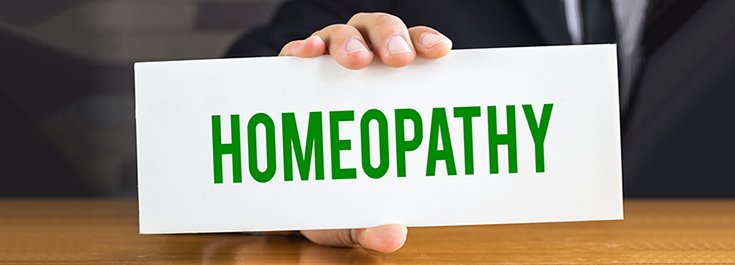NHS England to Ban Homeopathy and Herbal Medicine to Save Money

The U.K.’s National Health Service (NHS) has announced that it will ban homeopathy and herbal medicine in order to save £250 million ($325 million) a year, calling the healing methods a “misuse of scarce funds.” They are among dozens of medicines which officials said should not be funded by the health service. [1]
NHS has spent hundreds of thousands of pounds on homeopathic treatment, which it now says “is a placebo” and a waste of money that could be spent on “treatments that work.”
Health officials said the products on the list were “relatively ineffective, unnecessary, inappropriate, or unsafe for prescription on the NHS.”
Moving forward, patients will be told to pay for their own treatment for dozens of common ailments, ranging from indigestion to athlete’s foot. No more homeopathic products like cough and cold treatments, eye drops, or laxatives will be covered by the service.
Additionally, the Department of Health is mulling cutting back spending on gluten-free products.
NHS chief executive Simon Stevens said:
“The NHS is probably the world’s most efficient health service, but like every country there is still waste and inefficiency that we’re determined to root out.
The public rightly expects that the NHS will use every pound wisely, and today we’re taking practical action to free up funding to better spend on modern drugs and treatments.”
Read: Study Suggests Homeopathy “Aided Pain of Cancer Patients Ten Fold”
According to officials, many of the natural health remedies that had been offered by NHS are readily available over the counter in pharmacies, supermarkets, and other stores, and are often priced lower than the cost to NHS.
It might be cheaper for the NHS, but not for low-income patients. Don Redding, National Voices’ director of policy, noted:
“There are many patients who would be unable to afford the remedies over the counter – for example people who are exempt from prescription charges such as the under-16s, people living with cancer, pregnant women and those on low incomes.
Stopping such prescriptions would be tantamount to introducing ‘ability to pay’ as a barrier to accessing the treatments people need. This breaks with the principle of ‘free at the point of use’ guaranteed by the NHS constitution.” [2]

“Ability to pay” refers to forcing patients to pay for other products the NHS claims are “ineffective, overpriced and low-value” instead of giving prescriptions for them.
The NHS constitution states that:
“Access to NHS services is based on clinical need, not an individual’s ability to pay; NHS services are free of charge, except in limited circumstances sanctioned by parliament.”
Read: 1,900 Prescriptions Filled to Britons Every Minute, 1 Billion a Year
Despite the contradiction, experts welcomed the announcement.
Edzard Ernst, emeritus professor of complementary medicine at the University of Exeter, said:
“Homeopathy is based on implausible assumptions and the most reliable evidence fails to show that it works beyond a placebo effect. It can cause severe harm when used as an alternative to effective treatments.
Therefore, it is high time that the NHS stops funding it and instead employs our scarce resources on treatments that are backed by sound science.”
Project director of the Good Thinking Society Michael Marshall stated:
“This is very welcome news. Every credible medical body certainly knows that homeopathic remedies are just not effective for any conditions at all and it is great to see this strong statement from NHS England officially acknowledging the fact.”
However, Professor Helen Stokes-Lampard, chair of the Royal College of GPs, said the ban threatens the health of those most in need. [3]
She explained:
“If patients are in a position that they can afford to buy over the counter medicines and products, then we would encourage them to do so rather than request a prescription – but imposing blanket policies on GPs, that don’t take into account demographic differences across the country, or that don’t allow for flexibility for a patient’s individual circumstances, risks alienating the most vulnerable in society.”
Sources:
[1] The Telegraph
[2] Mirror
[3] Independent

I wonder how many problems would be fixed if everyone took a good dose of Lugol’s iodine everyday and the companion vitamins for the same. Seems like the U.K. tries to keep their people sick for some reason. Athletes foot? How about clove oil or borax as a foot wash. Clove oil is probably one of my favorite healing items for tooth ache, athletes foot, cuts and scrapes etc. For fungus it is hard to beat a good dose of 20 Muleteam borax….oh yeah the U.K. banned that stuff.
A method of healing from the dawn of mankind to 70 years ago it is replaced by the health business
with all the enormous contradictions that it entails